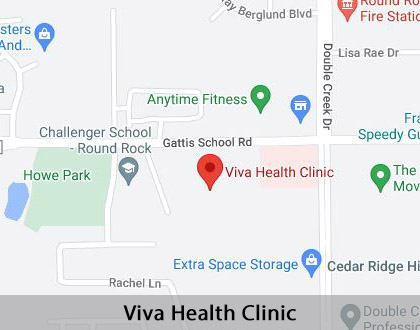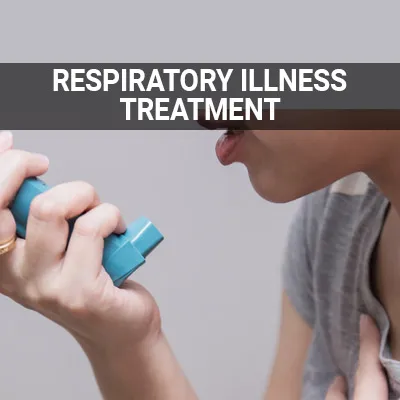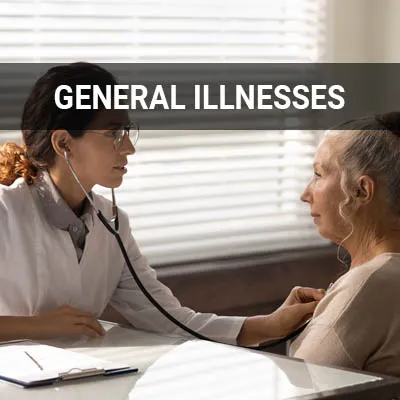Ear, Nose, and Throat Services Round Rock, TX
Conditions and symptoms that affect the ear, nose, and throat often signify a cold, flu, or other illness. However, that is not always the case, and each of them may be singly affected. It is important to understand the difference between symptoms that relay an illness and symptoms that may be connected to something else.
Urgent care can help diagnose and treat a variety of different ailments that affect the ear, nose, and throat. They may also indicate whether the symptoms or conditions are severe and require an emergency room visit.
Ear, nose, and throat services are available at Viva Health Clinic in Round Rock and the surrounding area. We can help treat your ailments and reduce the symptoms you may be experiencing. Call us today at (512) 243-5872 to schedule an appointment or learn more about our services.
Symptoms Requiring Medical Attention
In most cases, ear, nose, and throat (ENT) symptoms are minor and can be treated through medications and rest. However, a few symptoms may be life-threatening and require immediate medical attention at an urgent care or hospital. According to Emergency Medical Journal, "ENT conditions can be immediately life-threatening by causing an A, B, or C problem." These symptoms include:
- A. Airway obstruction/compromise—inhaled foreign body, epiglottitis, quinsy, anaphylaxis/angio-oedema, croup, facial fractures.
- B. Breathing difficulty—croup, inhaled foreign body
- C. Circulatory compromise—hemorrhage, for example, epistaxis, from facial fracture, secondary hemorrhage after ENT surgery, for example, after tonsillectomy.
“… there are a few symptoms that may be life-threatening and require immediate medical attention at an urgent care or hospital.”
Signs of a Common Cold
Often, ENT conditions and symptoms are signs of a common cold as all three parts are affected. Understanding common cold symptoms can help you determine whether or not you have a cold or another condition. Our urgent care practitioners can also run tests and thoroughly examine patients to accurately diagnose the illness, whether it is a common cold or not.
The most common symptoms of a cold are sneezing, runny nose, cough, sore throat, headache, nasal congestion, and fever (most common in children). These same symptoms are also common in the flu, with the addition of fever (in adults), chills, and body aches. It is crucial that patients go directly to urgent care when experiencing a high fever, chest or ear pain, an asthma flare-up, symptoms that go for ten days or longer, and symptoms that worsen over time. We recommend talking to your primary care practitioner about seeing an Otolaryngologist, or ENT practitioner, for long-lasting or frequently occurring symptoms.
“The most common symptoms of a cold are sneezing, runny nose, cough, sore throat, headache, nasal congestion, and fever…”
Causes of Ear Pain
The most common causes of ear pain are due to infection, injury, irritation, or referred pain from another condition, such as TMJ disorder. The single most common cause of earaches is an infection resulting from unclean water, headphones, cotton swabs, a respiratory tract infection, or a change in air pressure. Besides infection, earaches are often caused by:
- Earwax buildup
- A foreign object in the ear
- Strep or sore throat
- Sinus infection
- Shampoo or water trapped in the ear
- Temporomandibular joint (TMJ) disorder
- Perforated eardrum
- Infected or impacted toothaffecting the jaw
- Eczema in the ear canal
- Trigeminal neuralgia (chronic facial nerve pain)
Babies and children tend to have more earaches than adults as their eustachian tubes are smaller and straighter, making it harder to drain out the fluid. When fluid builds up in the tubes, bacteria and viruses can easily infect the ear canal. Babies also have a weaker immune system as they are still developing agents that fight off bacteria and infection, making them more susceptible to ear infections and earaches.
“The most common causes of ear pain are due to infection, injury, irritation, or referred pain from another condition, such as TMJ disorder.”
Check out what others are saying about our primary care practitioner services on Yelp: Ear, Nose, and Throat Services in Round Rock, TX
Causes of a Sore Throat
The most common cause of a sore throat is the common cold or the flu. There are a variety of other viral infections that can cause a sore throat, including mono (mononucleosis), measles, chickenpox, and croup — a common childhood illness characterized by a harsh, barking cough. Bacterial infections can also cause a sore throat or strep throat, an infection in the throat and tonsils.
The Mayo Clinic lists other causes of sore throats unrelated to viral or bacterial infections, such as:
Allergies: Allergies to pet dander, molds, dust, and pollen can cause a sore throat. The problem may be complicated by postnasal drip, which can irritate and inflame the throat.
Dryness: Dry indoor air can make the throat feel rough and scratchy. Breathing through your mouth — often because of chronic nasal congestion — also can cause a dry, sore throat.
Irritants: Outdoor air pollution and indoor pollution such as tobacco smoke or chemicals can cause a chronic sore throat. Chewing tobacco, drinking alcohol, and eating spicy foods also can irritate your throat.
Muscle strain: You can strain muscles in your throat by yelling, talking loudly, or talking for long periods without rest.
Gastroesophageal reflux disease (GERD): GERD is a digestive system disorder in which stomach acids back up in the food pipe (esophagus).
HIV infection: A sore throat and other flu-like symptoms sometimes appear early after someone is infected with HIV. Someone who is HIV-positive might have a chronic or recurring sore throat due to a fungal infection called oral thrush or due to a viral infection called cytomegalovirus (CMV), which can be serious in people with compromised immune systems.
Tumors: Cancerous tumors of the throat, tongue, or voice box (larynx) can cause a sore throat. Other signs or symptoms may include hoarseness, difficulty swallowing, noisy breathing, a lump in the neck, and blood in saliva or phlegm.
“There are a variety of other viral infections that can cause a sore throat, including mono (mononucleosis), measles, chickenpox, and croup…”
Questions Answered on This Page
Q. What ENT symptoms require medical attention?
Q. When are ENT symptoms a sign of the common cold?
Q. What are common causes of ear pain?
Q. What are causes of a sore throat?
Q. Which ENT symptoms are considered severe and what can happen if they are left untreated?
People Also Ask
Q. Are there any medications that can help relieve a fever?
Q. How is strep throat treated?
Q. The symptoms of ear pain will vary depending on its underlying cause?
Severe Symptoms
Patients experiencing severe symptoms, such as migraines, head or chest pain, hearing loss, difficulty sleeping, physical imbalance, pressure in the sinuses, and chronic sore throat, should seek immediate medical attention. Both urgent care and emergency rooms can treat or reduce minor symptoms and provide preventative measures to help you avoid reoccurrence. However, severe symptoms that also include pain in the head or chest can gradually worsen and progress into a severe condition, such as angina, labyrinthitis, vertigo, and pleurisy. In severe cases, we recommend patients seek an ENT specialist, or Otolaryngologist, as they are skilled at diagnosing and treating ENT conditions and disorders. An Otolaryngologist can treat a wide variety of conditions that involve the ears, nose, throat, head, and neck, including chronic infections, balance disorders, jaw pain, tumors, bronchitis, throat cancer, and facial trauma.
“…severe symptoms that also include pain in the head or chest can gradually worsen and progress into a severe condition, such as angina, labyrinthitis, vertigo, and pleurisy.”
Frequently Asked Questions
Q. What ENT conditions can urgent care diagnose and treat?
A. Urgent care can help diagnose and treat minor ENT conditions that are not life-threatening but need immediate attention. Urgent care services include but are not limited to sore or strep throat, earaches, headaches, nose drips, and allergy testing. Give us a call and relay your symptoms, and we can help you determine the right course of action depending on severity.
Q. What ENT conditions are considered life-threatening?
A. Severe ENT conditions that are life-threatening include symptoms of head and chest pain, sleep apnea, difficulty breathing, hearing loss, and balance problems. In most cases, ENT conditions start off minor but gradually worsen when left untreated. Severe ENT conditions require an Otolaryngologist for accurate diagnosis as they could develop into another condition if improperly diagnosed.
Q. How does an urgent care practitioner diagnose an ENT condition?
A. An ENT examination involves a thorough examination of the face, ears, nose, throat, and neck, along with a discussion of the patient's medical history and ongoing symptoms. If symptoms are concerning, we usually screen for hearing loss and check the pressure of the eardrums to determine the fluid amount. Many ENT conditions share the same symptoms, but a proper examination can usually help us identify the main cause and offer relief.
Q. What medications can help reduce ENT symptoms?
A. There are a variety of medications that can help with ENT symptoms. Medicines that are applied directly to the affected area, such as nasal sprays, generally work faster and are more effective. Many minor ENT conditions can be treated with over-the-counter medications or a prescription written by one of our urgent care practitioners. However, more severe cases will require specific medications depending on the condition.
Q. When should I immediately seek an ENT specialist?
A. Cold and flu symptoms that last longer than a week often signify the need to see an ENT specialist. More severe symptoms, such as pain in the face, trouble swallowing, dizziness, snoring, and hearing problems, can prompt immediate attention by an ENT specialist. Call us to help you determine whether your symptoms require an ENT diagnosis.
Start Feeling Better - Visit Us Today
By visiting us as soon as possible, our team can help get you the professional treatment you need. Instead of waiting around and allowing the symptoms to get worse, we can provide you with treatment options.
Definition of Medical Terminology
Call Us Today
ENT symptoms can relay a common cold or could gradually worsen and become life-threatening. Our urgent care facility can diagnose and treat your symptoms early on to prevent progression and get your health back. Call us today at 512-243-5872 to schedule an appointment or learn more about our services.
Helpful Related Links
- American Academy of Otolaryngology. American Academy of Otolaryngology. 2023
- American Journal of Medicine. American Journal of Medicine. 2023
- American Medical Association (AMA). American Medical Association (AMA). 2023
About our business and website security
- Viva Health Clinic was established in 2023.
- We accept the following payment methods: American Express, Cash, Discover, MasterCard, and Visa
- We serve patients from the following counties: Williamson, Travis, McLennan
- We serve patients from the following cities: Pflugerville, Austin, Kyle, Waco, Leander, Cedar Park, Bastrop, Round Rock, Georgetown, Hutto, Liberty Hill, and Taylor
- National Provider Identifier Database (1104428416). View NPI Registry Information
- Norton Safe Web. View Details
- Trend Micro Site Safety Center. View Details
Back to top of Ear, Nose, and Throat Services










